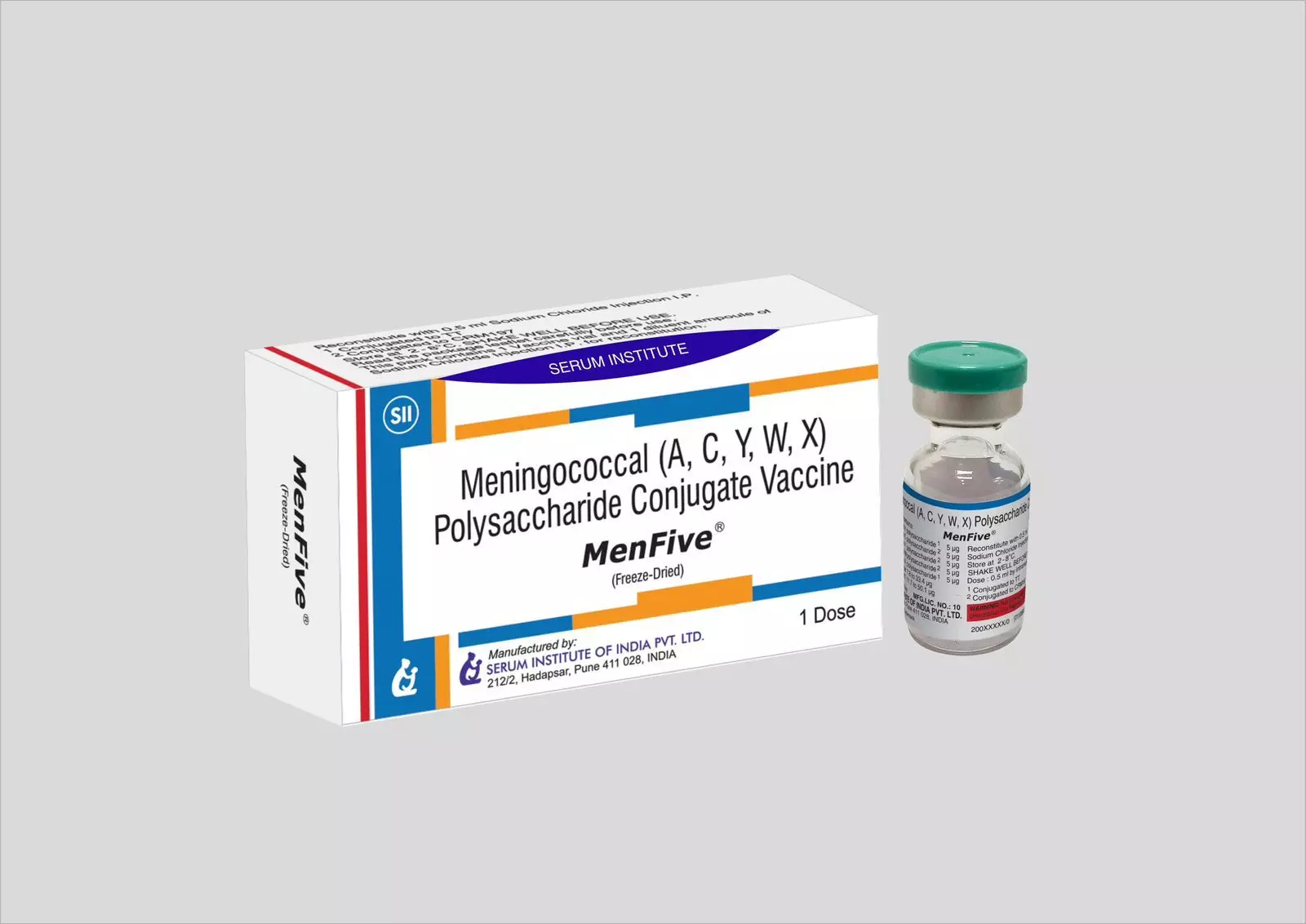WHO-approved MenFive, turning point in fight against African forms of meningococcal meningitis
Multivalent meningococcal meningitis vaccine from the Serum Institute of India achieved WHO prequalification, it will help in the fight against Meningococcal Meningitis
By Newsmeter Network
Hyderabad: The World Health Organisation (WHO) has prequalified MenFive, the first conjugate vaccination to protect against Africa’s five most common forms of meningococcal meningitis.
About MenFive
“MenFive is a game-changer vaccine developed through a powerful 13-year collaboration between SIIPL, PATH, and vital support from the UK government in the fight against meningococcal meningitis in Africa. It is the first conjugate vaccine to protect against the five most common causes of this lethal illness and gives promise for a future free of yearly outbreaks and epidemics in the African meningitis belt. It is a watershed moment as we work together to create a better Africa while saving countless lives,” stated Adar Poonawalla, CEO of Serum Institute of India.
MenFive is designed to eliminate annual meningitis outbreaks and epidemics in the African meningitis belt, which stretches from Senegal and The Gambia in the west, to Ethiopia in the east. It is also the only vaccination against meningitis caused by meningococcal group X, a virus becoming more implicated in African meningitis epidemics.
MenFive builds on the legacy of MenAfriVac, SIIPL’s pioneering vaccine developed in collaboration with PATH and WHO that, after its initial release in 2010, ended serogroup A meningococcal meningitis epidemics throughout the African meningitis belt.
Health Outcomes
MenFive is intended to avoid not just meningitis death, but also handicap in survivors who would face permanent social and economic implications.
Furthermore, MenFive is expected to provide an affordable new intervention with two highly impactful health outcomes:
- broad, highly effective direct protection against invasive meningococcal disease.
- indirect ‘herd’ protection (to unvaccinated people) by significantly reducing the meningococci bacteria in the nose and throat, which is critical for transmission.
Approved by WHO
WHO prequalification, which assures that a vaccine fulfils stringent international quality, safety, and effectiveness requirements, was backed up by comprehensive clinical trials in The Gambia, India, and Mali that indicated a high degree of safety and immunogenicity. Importantly, prequalification permits United Nations organizations and Gavi, The Vaccine Alliance, to get MenFive.
MenFive has been approved by the World Health Organisation for use in adults and children aged 1 to 85 years, and will initially be available for use in reactive vaccination programs during meningitis outbreaks. MenFive is now being discussed by WHO, its partners, and affected countries as the most effective method for reducing meningococcal meningitis through a mix of proactive immunisation campaigns and as a substitute for MenAfriVac in the standard immunisation schedule. Furthermore, because MenFive is the only meningococcal serogroup X vaccine, it may be beneficial in other regions of the world.
Affordability
“MenFive is a much-needed medical intervention that will be available at an extremely low cost, Making sure vaccines are available to those who need them the most is a philosophy SIIPL has followed with all of our products and continues to follow with MenFive,” explained SIIPL executive director Dr Rajeev Dhere.
“This landmark scientific achievement will have huge implications for improving public health. Having access to a new, low-cost vaccine will save lives, prevent long-term illness, and bring us one step closer to eradicating meningitis by 2030. I am extremely proud that the United Kingdom has supported PATH and the Serum Institute of India in this monumental achievement,” says Andrew Mitchell, the UK’s International development minister.
What is Meningococcal Meningitis?
Meningococcal meningitis is a bacterial illness that can kill within hours of onset. If left untreated, it can cause serious brain damage and infection, leading to limb amputation, and is fatal in 50% of cases. Anyone can have meningococcal meningitis, but children under the age of five, especially newborns, are more likely to get it.
Polysaccharide vaccines have been employed in the past to combat African meningitis outbreaks, but they have limitations. They only give temporary protection, do not maintain herd immunity, and are often ineffective in newborns and children under the age of two. Conjugate vaccinations offer more effective and long-lasting protection against meningococcal illness.
Multivalent meningococcal conjugate vaccines that protect against serogroups A, C, W, and Y have been available for decades on the global market, but they are too expensive for meningitis belt countries to include in their meningitis prevention strategies, putting 450 million people at risk of death or severe disability from meningococcal disease.
Turning point in global effort to defeat Meningitis
“The prequalification of MenFive represents a turning point for the African meningitis belt and a significant step forward in the global effort to Defeat Meningitis by 2030, The development of new multivalent meningococcal conjugate vaccines is an important strategy for the prevention and control of bacterial meningitis. MenFive is an important instrument that will save thousands of lives each year,” says Dr Bill Hausdorff, head of PATH’s meningitis vaccine research initiatives.
“Meningococcal meningitis has long been a torment for meningitis belt countries, The introduction of the meningococcal A vaccine in 2010, which eliminated meningitis A epidemics in the African meningitis belt, was a watershed moment that demonstrated freedom from meningococcal meningitis was possible. But it was simply the start of the narrative. With MenFive, we now have the ability to permanently halt all meningococcal meningitis outbreaks in Africa,” says Dr Nanthalile Mugala, PATH Africa Region Chief.
Phase 3 Research
MenFive is now undertaking Phase 3 research in Mali in healthy children aged 9 to 15 months to assess its safety and immunogenicity when provided alongside measles/rubella and yellow fever vaccination.
The Infectious Diseases Clinical Research Consortium is conducting the study in partnership with the National Institute of Allergy and Infectious Diseases, part of the National Institutes of Health. Such research might assist to increase the availability of MenFive to protect as many individuals as feasible and promote the objective of eradicating meningococcal meningitis outbreaks in Africa.